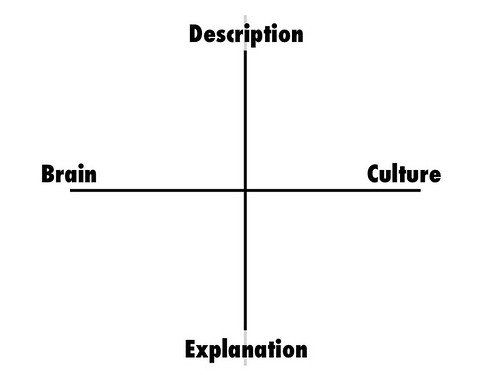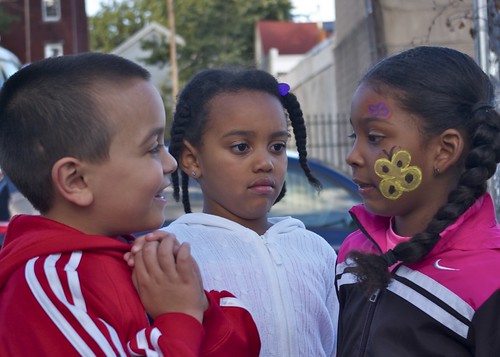I made my first post at New Savanna on April 14, 2010.
Before that I’d been blogging at The Valve, a now defunct group blog
centered on literature. I made my first post there, I believe, in
December of 2005, but I’d been active on the web in one way or another
for over a decade before that. Back in 1994 Bill Berry and I created Meanderings
– actually, Bill created it, I just joined in – and I’d been on
CompuServe before that. I tell the story about my digital travels in
this working paper: Personal Observations on Entering an Age of Computing Machines, Working Paper, November 2015. It started life as a series of blog posts here, as most of my working papers do.
Anyhow, it’s time for another accounting. First I look at the overall
total, then I make some observations about the top 10 posts, and I
conclude with some remarks of a more personal nature.
Overall page visits and top 10
I still haven’t got the foggiest idea what was going on in 2017. Maybe
Russian bots, by why would they spend a year cruising New Savanna? The
recent spike looks interesting. I have no idea where that will go.
Top posts
Here at the ten most popular posts. Those numbers are not accurate,
however. If you go through the numbers post by post you’ll see higher
numbers. And I’m pretty sure there are at least one or two posts that
should be in this list by aren’t. But I’m not going to try tracking them
down. This will do my present purposes.
What’s interesting about the behavior of individual posts is that a
number of them show large spikes at some point. With one exception, I do
not know what’s going on.
1. Sex, Power, and Purity in Kawajiri’s Ninja Scroll [Rape]
Posted September 2010.
This has been the most popular post since it went up. There’s no mystery
about that. Ninja Scroll is a popular anime and the post is about sex.
But what’s that spike at about January of 2019?
2. Secrets of Pink Elephants Revealed
Posted October 2010.
This has been popular for a long time as well, though it took two years
to gain traction. No surprise here either. It’s about a very popular
sequence from a popular Disney cartoon, albeit one that’s eight decades
century old. Think about that.
3. Horikoshi’s Wife: Affective Binding and Grief in The Wind Rises
Posted November 16, 2015.
This one pleases me a great deal. Why? Because it’s Miyazaki. I posted
it near the end of 2015 and, as I recall, it just coasted along. Then
for some reason it spiked early in 2020, and then tapered off at
midyear.
4. Two Rings in Fantasia: Nutcracker and Apprentice
Posted December 28, 2010.
This one saw a lot of action in its first two years and then tapered off. I haven’t got the foggiest idea why
5. Joe Rogan and Joey Diaz call “Bruce Lee vs. Chuck Norris” – a rough transcription of their conversation
Posted July 26, 2018.
This went up in July 2018, so it’s relatively recent. It’s also Joe Rogan. What’s that spike early in 2019, January to April?
* * * * *
6000 Posts at NS
My
first post at New Savanna went up on April 14, 2010. It consisted of a single Mimi & Eunice strip by Nina Paley and was called Pay Up. If you follow the link you’ll find the strip isn’t there; broken link. But I’m pretty sure this is the one:
It looks like I did 188 posts with
Mimi & Eunice, mostly
up through 2012, which seems to be when Paley stopped doing them. However, I’ve just discovered that she did a series of
The Jenndra Identitty Comics in late 2018 which will not please the woke among us. Looks like I’ll have some more Nina Paley to post.
Here’s a tweet, some concept art for
Hayao Miyazaki’s Totoro, one of my favorite films by one of my favorite film-maker. I’ve posted quite a bit about him – including extensive analysis of his most recent feature,
The Wind Rises.
I’ve been posting tweets since September of 2018.
And here’s a post I did to mark post number 2500:
2500 Posts: What Have I Been Doing at New Savanna? (appended below). That went up on
July 14, 2014 and included five photos and one diagram. It also included some accounting of what I’d been up to most recently.
I’m pretty sure that, back then I’d intended to do another such post to mark #5000. But that came and went and I didn’t even notice it. It was fortuitous that I picked up on #6000. Will I catch #10,000? Will I even be posting then?
Who knows?
But 6000 posts! Can you believe it? There are
1969 photo posts – I know this because they’re all tagged with “photo” and the analytics gives me a count of how many posts are on a tag. Almost all of the photos are mine, though a very few are in tweets. These posts all have one or more photos in them, some perhaps as many as a dozen or more. Most of them are without commentary. But a few have light commentary, and fewer still have extensive commentary.
I try to vary my choice of photos from day to day. Sometimes the photo or photos for a given day will be in counter point with other posts on that day.
Roughly speaking, the other 4000 posts or so are divided between long-form posts in which I think about various subjects – literature and literary criticism, music, cultural evolution, computers and computing, psychology of various kinds, some autobiographical pieces, and so forth – and posts linking to articles by others. There’s no easy way for me to count the long-form posts. I’d guess there are less than a 1000 of them. Less than 500 or more? Can’t say. But this is where I do much of my thinking, out loud and in public. Some of them are more polished than others, and I use various writing styles as the topic warrants.
The other 3000 to 3500 (or more) posts feature material by others, generally with quotations, often extensive, from the sources. If I’m linking to an academic article I’ll include the abstract and sometimes material from the body of the article. Depending on this or that, I may comment on the linked material, sometimes just a sentence or two, but sometimes at greater length. Let’s say that half of these posts (but I don’t really know the percentage) are on topics I’m actively thinking a posting about and so constitute research. The other half is just things I’m interested in, often current events.
* * * * *
One other thing. I don't know what I've got here. Sure, I know roughly what I've got, and I've got that ridiculous tag cloud over there to the right. But when I go roaming through the archives I find things I've forgotten about.
Always.
It's like that, no?
* * * * *
2500 Posts: What Have I Been Doing at New Savanna?

The
oldest post on New Savanna is dated April 14, 2010, though it consists only of a broken link to a Nina Paley cartoon. I have this vague sense, however, that I made an earlier post on April 10 and then deleted it at some point. No matter. I started the blog in April of 2010.
So it took me roughly four years and two months to run up 2500 posts. Some are short, consisting only of a single photo or a link and some prose, while others are long-form essays, and some of those include photos (or other illustrations). And a number of posts have been gathered together into single documents which I’ve then posted as working papers at
Social Science Research Network, or
Scribd.
But what’s it all about? What would I tell someone who landed on New Savanna for the first time?
That’s a tough one, for I don’t even quite know what’s here anymore. It’s a mix, whatever I want to blog about. To a first approximation, think of it as my intellectual interests, photographs, and various other stuff.
My intellectual interests are various and resist easy summary. But I’ll single out three posts for special notice. Back in 2011 Tim Morton got me interested in philosophy, which was where I was headed as undergraduate until “Kubla Khan” ambushed me into literature. I ended up sketching a pluralist metaphysics that I distilled into two posts:
- The Living Cosmos (14 Sept 2012): It makes more sense to conceive of the cosmos, all of it, as a living being rather than a pile of dead matter. If dead matter, then how come life? But, if life, then there’s not problem, is there?
- The Abundance Principle and the Fourth Arena (16 December 2012): This living universe started with Matter, from which Life emerged, and Culture from Life. This principle of emergence we can call the Abundance Principle, after Paul Feyerabend. We are on the cusp of emerging another Realm, for which I have no name other than The Fourth Arena.
To those two I would add:
STC, Poetic Form, and a Glimpse of the Mind (10 November 2013): By attending closely (and I do mean in considerable detail) to “Kubla Khan” and “This Lime-Tree Bower My Prison” and charting the relationships between them, we can begin to the outlines of human mind in a way never before possible.
THAT’s as close as I can come to a distillation of my intellectual life. But I’ll give some more specific pointers a bit later.
Photographs don’t lend themselves to summary, so I’ve included a small sample in this post. Any post that contains a photograph is tagged “
photograph”. Some of those consist of a single photograph, while others contain two, three, or a handful, and some include commentary or this or that topic.
I’ve also posted
about photography: What's a photograph, anyhow? Is color real? Representation? I like to group photographs so the individual images can resonate with one another. I will occasionally throw up a group that points to
matters ontological. And some of those photographs aren’t photos; they’re
MacPaint images.
Of course, I’ve got lots of photos of
graffiti, and I’ve got a particular interest in
graffiti sites. Many of the graffiti posts, of course, have commentary about the photos. In
Animal, Vegetable, Mineral, I ask: What is Graffit? (none of the above). I should also mention a series of posts in which I worked my way through Bruno Latour’s
Reassembling the Social by using
graffiti as my major case study.
I’ve taken a good many photographs of but also in (what’s the difference, of/in?)
Jersey City, where I’ve lived since the late 1990s, with digressions to Hoboken and Maplewood. I’ve got a number of
photo essays of Jersey City, where I comment on some aspect of the city, and a several posts on the
City’s future prospects.
My intellectual work is all over the map, that one above. I’m interested in culture – my Ph.D. is in literature – and in how culture is embedded in the human brain, or if you will, how the brain supports culture. Some of my work is descriptive in nature – much of my work on literature and film – but I also try to explain things.
Here, in no particular order, are some pointers into that territory:
- Cultural Evolution: including The Evolution of Human Culture: Some Notes Prepared for the National Humanities Center, Version 2 (2010), where I use music as my major source of examples; Cultural Evolution: A Vehicle for Cooperative Interaction between the Sciences and the Humanities, and Cultural Evolution, Memes, and the Trouble with Dan Dennett (2013), in which I reach a conception of the meme that’s quite different from Dan Dennett’s, but which might actually be useful. Note that these links lead to PDF’s at my SSRN (Social Science Research Network) site, but they started out here.
- Major analytical and descriptive work, where I look at specific texts in considerable detail through a series of posts: Disney’s Fantasia and Dumbo, Porky in Wackyland, The Greatest Man in Siam, films of Miyazaki, Nina Paley's Sita Sings the Blues (all cartoons), Apocalypse Now, Gojira (live action films); Heart of Darkness (novella). I also have a number of posts specifically concerned with the problems of description and with describing ring-composition.
- Literature and Literary Criticism. Let’s stick Lévi-Strauss here as well, myth logic, and Franco Moretti. How about digital humanities and Alan Liu?
- Coupling and Synchrony: These posts are about how humans cohere in social groups by synchronizing the timing of their neural activity during interaction. Many of these posts concern music, for example, this one on clapping and group intentionality, this one on bell rhythms, and this one on spirits.
- Pluralism: These posts represent my encounter with object-oriented ontology: Bennett, Bryant, Harman, Latour, Morton. This intersects with my interest in cognitive science though ontological cognition: how the mind conceptualizes different kinds of things.
- The newer psychologies: cognitive science, cognition, perception, computation, brain, neuroscience, linguistics.
- Behavioral Mode, very important. This is where the mind meets the body meets society. Peak experience. Sexuality. Love. Psychoanalysis.
I could pull out more topics for particular mention here. And if I did this again tomorrow, I’d do it differently. But this is a reasonable take on the blog.














No comments:
Post a Comment